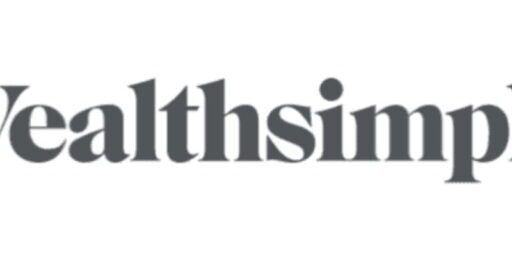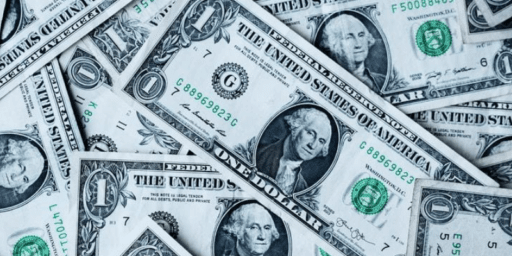November 2008 Net Worth Update (-1.59%)
Welcome to the recurring monthly net worth update – The November 2008 edition.
For the second month in a row, I was not looking forward to putting this post together. As you can see from the title, November 2008 is another down month with my net worth dropping an additional 1.59%. What’s the reason for the decrease? The markets have dropped to levels not seen since 2003/2004 which means most, if not all, equity positions are lower… much lower.
I also made the mistake of deploying some of the cash I had in my RRSP and SM Portfolio into positions I thought were a “steal”. Apparently, cheap stocks can get much cheaper!
What prevented this update from being really ugly was, once again, our trusty savings.
Here are the assets/liabilities result for the month of November:
Assets: $ 577,750 (-0.98%)
- Cash: $4,500 (+0.00%)
- Savings: $36,000 (+9.96%)
- Registered/Retirement Investment Account: $41,100 (-8.67%)
- Pension: $22,350 (+0.00%)
- Non-Registered Investment Account: $18,300 (-1.08%)
- Smith Manoeuvre Investment Account: $42,000 (-10.45%)
- Investment Property: $ 124,500 (+0.00%)
- Principal Residence: $275,000 (+0.00%) (purchase price)
- Vehicles: $14,000 (2 vehicles) (+0.00%)
Liabilities: $ 266,400 (-0.26%)
- Investment Property Mortgage: $92,300 (-0.22%)
- Principal Residence Mortgage (readvanceable): $122,700 (-0.57%)
- HELOC balance: $51,400 (+0.39%)
Total Net Worth: ~$311,350 (-1.59%)
Started 2008 with Net Worth: $279,300
Year to Date Gain/Loss: +11.48%
For those of you tracking your net worth, how much has the market down turn affected you?
Some quick notes and explanations to net worth questions I get often:
The Cash
The $4,500 cash are held in chequing accounts to meet the minimum balance so that we pay no fees (accounting for regular bill payments). Yes, we do hold no fee accounts also, but I find value in having an account with a full service bank as the relationship with a banker can prove useful.
Savings
Our savings accounts are all held with PC Financial. We hold a fair bit of cash in case “something” comes up. The “something” can be anything that requires cash such as an investment opportunity that requires quick cash or maybe an emergency car/home repair.
Real Estate
Our real estate holdings consist of a primary residence plus a rental property. The value of the principal residence remains valued at the purchase price despite significant appreciation in the real estate market that we’re in. The rental property value was appraised in 2006. I’m considering raising the reported values of the homes at the rate of inflation starting January 2009.










This tracking is interesting but your net worth is too much in illiquid real estate and vulnerable to the housing market vagaries. In addition, you are talking about adjusting the r/e values higher based on inflation. For those tracking their net worth, I’d suggest focusing on non real estate. A property is only worth what someone will pay-and you won’t know until you try selling. With stocks and bonds, not only are they liquid, but they are a better assessment of net worth. That’s why most firms and banks, etc rely on your net worth other than your principal residence. I’d be more impressed if your net worth was increasing due to your investment acumen with stocks and bonds, I would like to see an 11% rise based on liquid investments, not illiquid investments. The goal should be $1,000,000 in totally liquid assets in addition to R/E. Good Luck
My equity portfolio is down 62% However, I’m 22. I invested in oil as it was going up (around 140)… made a mistake… I’m going to do some dollar-cost-averaging ASAP =).
MoneyMinder:
I also grabbed Citigroup; if you have low-tolerance for risk I’d suggest not doing US financials. I watched Citigroup almost collapse around $3 in about a week. Scary ordeal, but it seems the US govt won’t allow some financial institutions to fail. They just keep pouring more money in. Also, I’m going to do some dollar cost-averaging here too.
Here’s a plug;
I’m currently reading “the intelligent investor”; it’s a great book. Especially if you have a 100% common-stock portfolio ;-)
You are almost near to a million dollar. Keep it up. But the market is not helping you. It’s bringing us all down.
Hi, I’ve been following your blog. And started a new blog with the same networth updates every month just like yours. We’re all a victim in one of the worst financial crisis. Hopefully, the sun would shine soon.
Hey FT – I was wondering about your pension. I’ve noticed it hasn’t changed at all over the past several months. Is it a defined contribution pension or defined benefit?
I have a defined contribution pension and it changes in value with the stock market (it’s essentially an extra RRSP that my employer and me contribute to). How do you value yours?
Our net worth is down 11.87% since December 2007. Yikes! We’re in our late 30’s and our RRSP’s took a huge hit this year.
Sorry all! I did not know that you lived in an area with a strong economy. I thought this blog was written by a US resident. – I have never been to Newfoundland. My horizon has not expanded that far yet. (Taking a look at it from the plane on the way to or from Europe does not count, does it now?) I hope to make it there soon. Ever since I met a family from St. John’s – very nice people – I have been curious about the area.
Eeesh, good thing the month end net worth cut off date was at the end of last week’s stock market rally and not after today’s collapse!
On the flip side, some attractive dividend-yielding stocks got cheaper.
You have done very well in a year where stocks have gone down like they have, it means when stocks starts to go up you stand to gain a lot. Good luck
Dan, I am a compulsive cash hoarder. As I have my RRSP maxed out, some of the cash would be better off paying down my mortgage. On the other side of the coin though, with rates in dropping mode (maybe 0.50% drop on Dec 9) in addition to a discounted variable mortgage, paying down the mortgage may not offer the best return.
I’m personally a big fan of the high interest rate savings accounts as they offer a competitive interest rate along with flexibility to withdraw whenever you please.